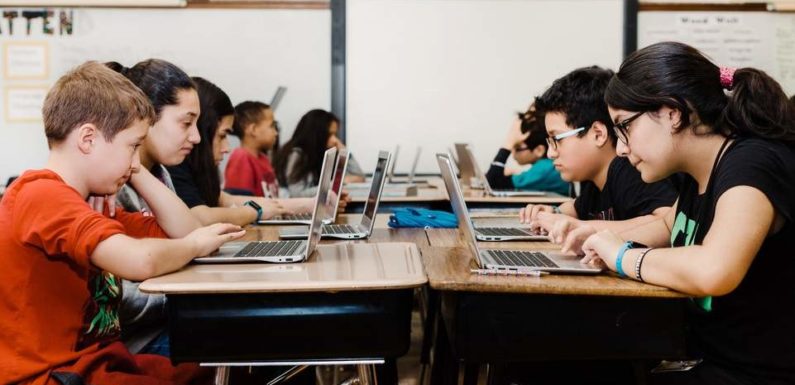
“Tell me and I’ll forget. Show me and I may remember. Involve me and I learn.” – Benjamin Franklin
Education is no more about blackboards and lengthy textbooks. It is more about involvement and interaction. Today students can learn a concept through mobile apps without even being physically present in the classrooms. The learning systems have become so intelligent that they can change the lesson plans based on how the students are responding to the lesson. Textbooks have been replaced by eBooks and blackboards by smartboards. This usage of technology in education is broadly termed as EdTech or Education Technology.
The Rise of EdTech
Education technology is no new concept for most of us today. We are aware of online learning, mobile learning, virtual laboratories and artificial intelligence in education. EdTech has already made a huge impact on the educational sector. Now you might think what’s new in this post then. Well, although EdTech is a known concept it is still evolving. There are still several opportunities in education technology and many more innovations to come across. That is why everyone sees EdTech as a big opportunity.
EdTech is a Solution to Financial Challenges in Education
EdTech plays a crucial role in enhancing the education system mainly in developing countries. With EdTech it is possible to cut costs and create efficiencies. It can overcome challenges like poor transportation and financial dependencies of the learner. China has been observed as the biggest investor in the EdTech industry with US$3 billion in revenues. However, there are certain countries that are unable to generate proper funds to implement educational technology. But if given a direction, EdTech can do wonders for their children.

Improved Learning and Student Engagement
The main purpose of this technology is user engagement and interaction. With the incorporation of multimedia, graphics, virtual reality gamification, and mobile apps, learning has become more of an immersive process. Students can now not only just learn but experience the concepts on their own and remember them for a lifetime. Online learning platforms such as Chegg, Wyzant, CrunchGrade, etc. let students find subject matter experts for tough subjects. For instance, a struggling student sitting in Australia can find an expert online Science tutor to study anytime, anywhere online at the click of a button. EdTech is bringing ‘fun’ back to learning. Learners are motivated to exhaust the available resources to become experts in their fields by the help of supplemental education made possible by the fusion of technology and education.
EdTech has made it possible for the learners to access the resources whenever they want to from wherever they want to. It has hence made a link between what students learn in classrooms and at homes. EdTech has completely changed the way students interact with education and will keep bringing new concepts of learning and teaching.
Brands taking help of Educational Content
EdTech can prove to be a useful tool in enhancing customer understanding. Brands can create educational content to explain their services or a product. They can explain how that product works, the inspiration behind it, its usage and what not. Companies can share their own story as well through such content and make a connection with their customers.
Establishing Authority in the Market
Thanks to the online world today, one can find tons of choices of the same service or product on the internet. Everyone claims to be better than the rest. The only way to assess one’s quality and reliability today is through authority. If a business can establish its mastery in a field, people would automatically turn towards it. EdTech can help the brands demonstrate their expertise in an area through academic content. They can bring up their own series of courses that would demonstrate their specialty and authority. They can sponsor a qualification relevant to their industry and reflect that they are the masters of their field.
Standardizing Education
EdTech is not just meant for enhancing the user experience or boosting student engagement. It is also a means to standardize education globally and making it accessible to all no matter where they are in the world. Online learning platforms, mobile education, and cloud computing are some of the ways of achieving this huge objective. Whether it is a developing nation or a developed nation, all can access the same educational resources irrespective of their culture, location, beliefs, ethnicity or social backgrounds.
Enhancing the Knowledge Economy
The term ‘knowledge economy’ however has been used for developing countries where products and services are based on rational, logical and intellectual aspects. But EdTech can enhance the knowledge economy, no matter what percentage it holds in any country to a great extent. The innovation in EdTech serves to be the right source that can help develop knowledge economy of a country since it is now been incorporated in schools, higher education, employee training, and professional development on a global basis.
Besides this, EdTech holds the massive potential of transforming the education landscape with the incorporation of augmented reality, virtual reality, and block chaining. Technology is now a significant aspect of education and the list of opportunities in never ending! With such great options and possibilities, the future of education seems bright and so does of our future generations.


